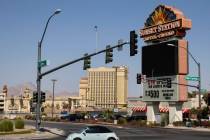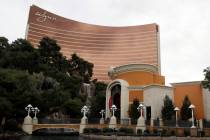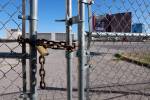More of Asia gets in on gambling
MACAU - In the Philippines, a $4 billion casino will soon rise from reclaimed land on Manila Bay. In South Korea, foreign investors are expected to break ground next year on a clutch of casino resorts offshore. And on the eastern edge of Russia, authorities plan a resort zone aimed at drawing Chinese high rollers.
The projects are part of a casino building boom sweeping Asia, where governments are trying to develop their tourism markets to capture increasingly affluent Asians with a penchant for gambling. They're building glitzy, upscale Las Vegas-style resorts in a bid to copy the runaway success of Asian gambling hubs Macau, which rapidly became the world's biggest casino market after ending a monopoly, and Singapore, where the city-state's first two casinos raked in an estimated $6 billion a year after their 2010 openings.
The casino boom highlights how the gambling industry is being propelled by the region's rapid economic growth, with millions entering the middle class thanks to rising incomes that allow them to spend more on travel and leisure pursuits. But it has also intensified debate over the social ills and perceived economic benefits of the gambling industry.
"Definitely, the success of Macau has set off a chain reaction in what is happening in the region," said Francis Lui, vice chairman of Macau casino operator Galaxy Entertainment Group.
The fortunes to be made are immense. After Macau ended a four-decade monopoly and allowed in foreign operators such as Las Vegas Sands Corp., Wynn Resorts Ltd. and MGM Resorts International, the former Portuguese colony on the southern edge of China quickly overtook the Strip as the world's biggest gambling market. Last year the city of just 500,000 people raked in $33.5 billion in gambling revenue.
a booming business
In Singapore, the Marina Bay Sands and Resorts World Sentosa, which together cost more than $10 billion, have put the city on track to becoming the world's second-biggest gambling market.
By 2015, consultancy PricewaterhouseCoopers predict the surge in Asian casino revenues will have "fundamentally reshaped the landscape of the global industry" and help Asia edge out the United States as the world's biggest regional market.
PricewaterhouseCoopers forecasts that the Asia-Pacific gambling market will more than double from $34.3 billion in 2010 to $79.3 billion in 2015, surpassing the United States, which is estimated to grow from $57.5 billion to $73.3 billion in the same period.
Several projects planned or under way across the region are helping to fulfill that prediction.
Cambodian operator Nagacorp, which runs the only casino in the Southeast Asian city's capital, Phnom Penh, plans to open a $369 million expansion including hotels and shopping later this year.
Vietnam will get its first hotel-casino next year. Canadian company Asian Coast Development is set to open an MGM-branded beachfront complex in the southeast. It's part of a $4.2 billion tourist development.
Both countries bar their own citizens from entering casinos.
In Japan, where legalization has been debated for years, lawmakers have been inching closer to approving casinos as a way to stimulate the economy and boost tourism following last year's devastating tsunami and nuclear disaster.
But not everyone is sure this gamble will economically benefit Japan, which already allows gambling on horse, boat and bicycle racing as well as slots.
"If we get casinos in Japan, that will destroy the nation," said Ken Wakamiya, an author and anti-gambling activist. "Introducing casinos is a plan to rip off our own people. It is an act of madness," he said.
tighter rules
A similar debate has played out in Taiwan, which will get its first casino after residents on the island of Matsu voted in favor in July.
Some countries are looking to Singapore as a model for how to bring in gambling without side-effects. The country, which authorized two big casino-resorts as part of an effort turn the Southeast Asian city-state into a gambling and tourism magnet, is tightening what are already some of the strictest measures in Asia to control organized crime and gambling addiction.
Junket operators - middlemen that bring in wealthy high rollers but that have also been linked to organized crime - are nearly banned. Regulators also plan a big hike in the amount casino operators can be fined for breaking regulations that include charging locals 100 Singapore dollars ($81) a day to enter. The government also expanded a program banning people who are bankrupt or receiving welfare from entering casinos, raising the number to 43,000.























